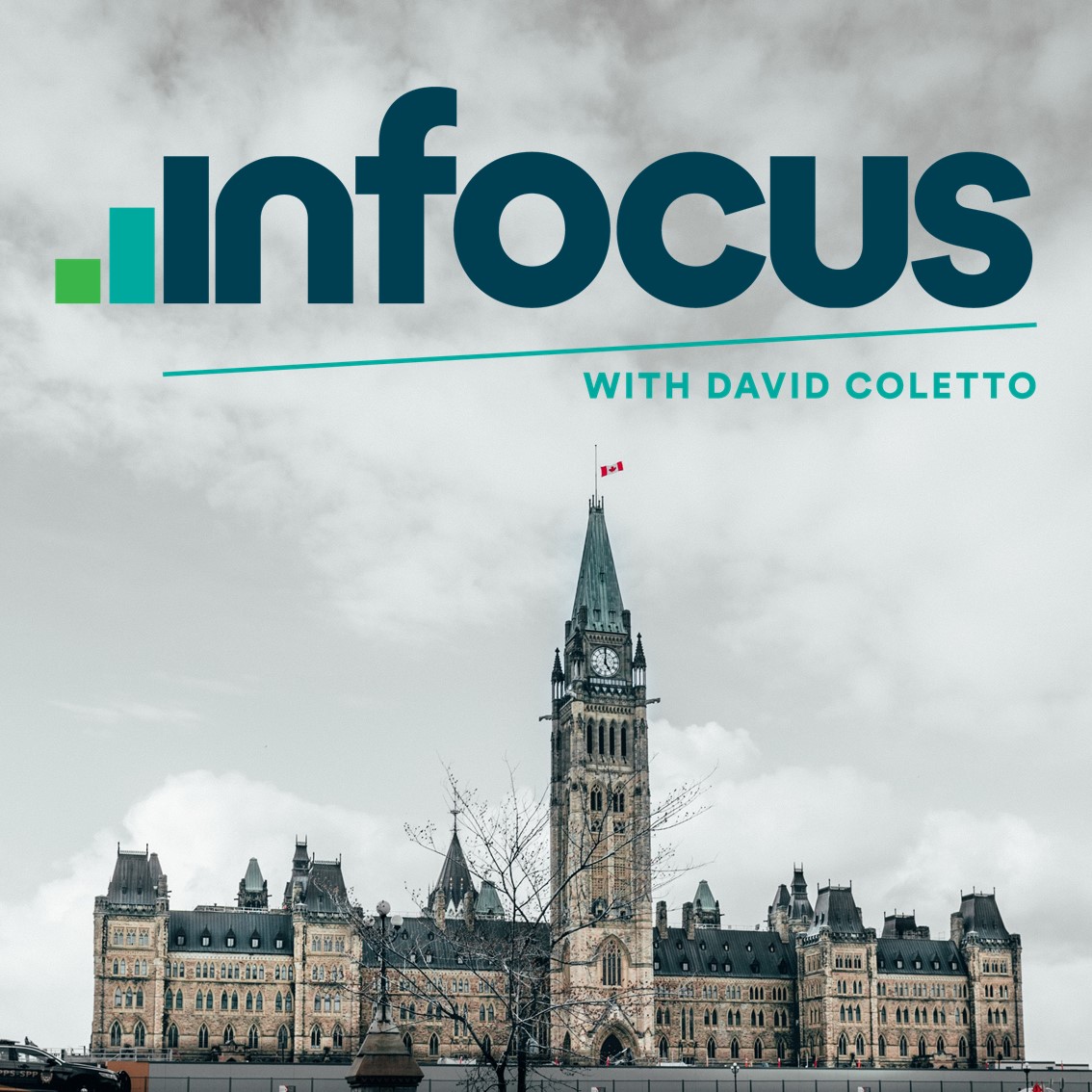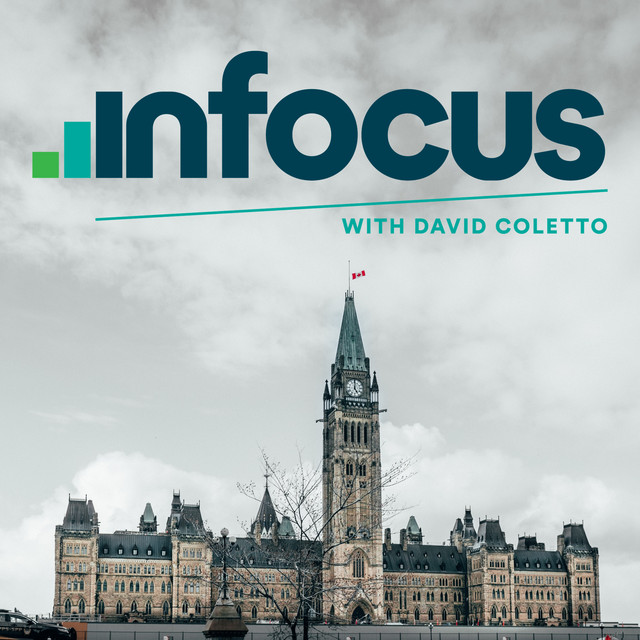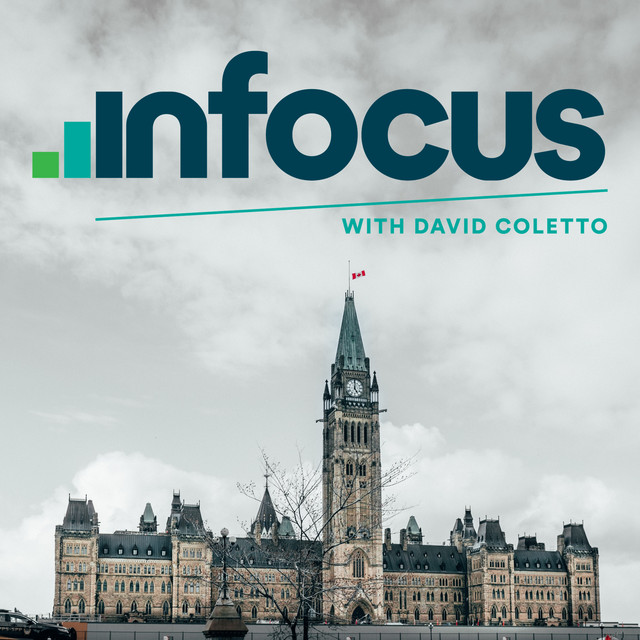Episode Transcript
[00:00:00] Foreign.
[00:00:18] Well, hey, everybody. Welcome back to In Focus with David Coletto. I'm David Coletto. Thanks for tuning in today. I want to dig into space, some polling and insights on the Canadian Federal election, insights I wrote in a piece that was published on Saturday on the Hub website. And it comes after I participated in the Empire Club event in Toronto that sparked a lot of controversy and conversation over the rest of the week. I was at that event that Cory Tanik mentioned. Some comments criticized the Conservative campaign strategy, and it really sparked a lot of thinking in my own mind that I ended up turning into a piece on that Hub website. The question on the minds of many Conservative supporters and plenty of observers is whether, you know, Pierre Pauliev and his team should pivot their message to directly confront Donald Trump's aggressive stance towards Canada. On the surface, I totally agree. It feels like a logical move given how much focus Canadians are paying to that issue, how much it's defining the dynamics of this campaign. But when I look at the data and I dig into it, I don't think it's so straightforward.
[00:01:38] Let's rewind for a moment. Right.
[00:01:41] We've just finished the first week of what is a very high stakes election campaign. At the outset, the Conservatives, I think, were positioned strongly. Canadians wanted a change in government. Pierre Poliev's campaign has been all about prosecuting that case for change. And they're hoping that widespread dissatisfaction with the Liberal government in its third term would translate into votes. But then Donald Trump won the election, was inaugurated, and turned up the pressure on Canada with new threats. Tariffs, annexation, 51st state. Those, those just kept coming and the public kept getting more frustrated, more angry, more sense of betrayal coming in response to all of that. So in politics, when a major external event intrudes on a campaign, no doubt it can reorder the priorities of voters overnight. The important question then becomes, should the Conservatives double down on standing up to Trump?
[00:02:36] Many commentators, strategists, say yes, because it's top of mind for voters. However, I believe that pivot might be a trap. Campaigns, especially early on, are about establishing your path to victory, not chasing someone else's. It's clear that the Liberals have been handed a beautiful opening hand. A brand new leader, no more Justin Trudeau. And in a political and opinion environment that favors them, there's no doubt that that has happened and shifted very quickly over the last number of years. So if Poliev tries to go head to head with Trump with the Liberals, I think he risks playing right into their hands. And remember, if there's any brand association between Poliev and Trump, even if it's exaggerated or unfair, it can hurt the conservatives among the large group of voters who are anxious about these US And Trump threats. My data suggests that a significant chunk of conservative supporters actually like Trump. By condemning him too forcefully, the party might alienate its own base, drive those voters to Max Bernier's People's Party, or even cause them to stay home entirely.
[00:03:52] Now, as if that weren't enough, Mark Carney has seized on this moment. He's framing himself and the Liberal Party as the steady hand, like a skilled physician ready to guide families through a crisis. At the Empire Club event I mentioned earlier, I emphasized that voters today want reassurance in a time of uncertainty. Trump's aggression has only magnified that desire for stability, even when people are also seeking a change from the cost of living challenges that they've been facing over the many number of years. In my polling, Carney is well ahead when voters are asked, who do you trust to defend candidate against Trump? Who do you want to guide the country? Who do you want to captain a ship through a storm? He's got the advantage on all of those. Yet at the same time, the underlying appetite for change hasn't disappeared. It's just competing with the Trump issue. In our latest survey, 54% of Canadians say they definitely want a change in government. Now, that's down from what it was at the start of the campaign, but it's still high enough that if that group is consolidated, I think that's the Conservative's best hope of winning.
[00:05:01] In the poll we just released, we asked people, you know, what's more important to driving your vote? Is it the cost of living, the party that can best lower it? Or is it Trump? And the cost of Living wins by 16 points, 58% to 42 over Trump. So it's clear that if the frame can be brought back to something other than Trump, there is a clearer, I think, path for the conservatives.
[00:05:25] So what should the conservatives do? Well, if I'm offering any advice and they don't usually ask me for it, the course, I'd say stay the course on time for a change. Double down on the cost of living. Throw out some bold policies that can be contested that the liberals would have to disagree on, and force the liberals onto your playing field. If they pivot too hard towards Trump, they'll fight on the ground the liberals have already claimed. Instead, politics. Poiev's campaign needs to acknowledge Trump's threats, be a little less, maybe A lot less Trumpy downplay any connection between the Conservatives and Trump, but at the same time refocus the public to something else and try to get the public to answer the question. Is it time to replace the Liberals with an affirmative? Because among those who see the ballot question that way, Pierre Poliev leads by over 30 points.
[00:06:20] Additionally, and really important, a major structural challenge for the Conservatives is that progressive voters who might otherwise split between the ndp, the Liberals, the Green, the bloc, are rallying around Mark Carney and the Liberals. Trump's tariffs have supercharged that consolidation of the progressive vote, leaving the Conservatives in an even tighter spot if they can't keep the spotlight on change. If those left of center voters remain united behind Carney, the Conservatives could win a large share of the popular vote vote, maybe as large as Stephen Harper won in 2011 and still lose the election. That's the conundrum they face. Which path, which choice, which strategy is most likely to re split the left and at the same time keep a conservative coalition together. Now, a lot can change and happen in the coming weeks. Perhaps Trump goes too far with tariffs, incites a real backlash. Maybe Carney makes a major misstep that reinvigorates the Conservatives and raises doubts about his ability to lead. Even though we've got a short campaign, it's still long and this is only week one done. But right now, Poliev's best bet is to chip away at the Liberal's advantage on leadership by offering that steady reassurance without taking the focus off the public's desire for change and its need to feel relief from the cost of living. Pivoting to go toe to toe with Trump might look tempting, but the data doesn't show any evidence that it would work. It's not as part of Pollyv strengths. Carney's already well established against him, and at least if he wants to bring new people to him, splinter the Liberal coalition and hold his base together, he's going to have to find a path that does all of those things.
[00:08:06] Ultimately, I think elections and election strategies about probability. You got multiple paths you could take, which one is most likely to lead you to victory. Ultimately, I think the Conservatives have been dealt a tougher hand than they thought they would get. And there's maybe no easy or obvious path and maybe all of them lead to defeat, but ultimately you've got to decide which one is most likely to get there. Well, that's it for today's episode of In Focus with David Coletto. Thanks again for joining me. If you found this analysis helpful, make sure to subscribe, follow the podcast, leave a review, and share it with your friends. You can also subscribe to my substack davidcoletto1l2t's.substack.com and get all the data and insights on the Abacus Data website. I'll be back next time with more insights on this Canadian election, and I hope you stay curious. Stay tuned and we'll talk to you soon. Take care.


